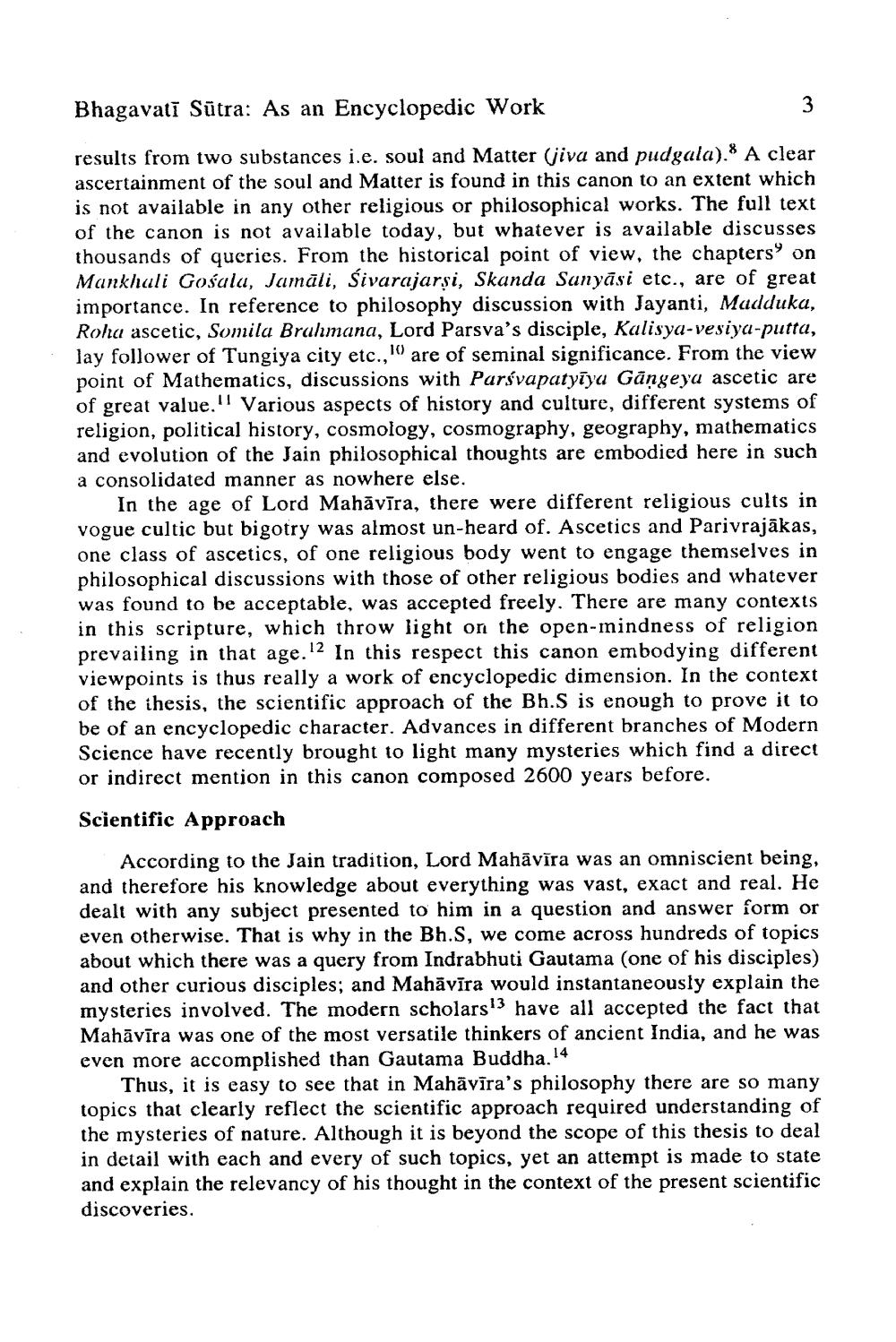________________
Bhagavatī Sūtra: As an Encyclopedic Work
results from two substances i.e. soul and Matter (jiva and pudgala). A clear ascertainment of the soul and Matter is found in this canon to an extent which is not available in any other religious or philosophical works. The full text of the canon is not available today, but whatever is available discusses thousands of queries. From the historical point of view, the chapters' on Mankhali Gosalu, Jamăli, Sivarajarsi, Skanda Sanyāsi etc., are of great importance. In reference to philosophy discussion with Jayanti, Madduka, Roha ascetic, Somila Brahmana, Lord Parsva's disciple, Kalisya-vesiya-putta, lay follower of Tungiya city etc., 10 are of seminal significance. From the view point of Mathematics, discussions with Parsvapatyīya Gängeya ascetic are of great value.' Various aspects of history and culture, different systems of religion, political history, cosmology, cosmography, geography, mathematics and evolution of the Jain philosophical thoughts are embodied here in such a consolidated manner as nowhere else.
In the age of Lord Mahāvīra, there were different religious cults in vogue cultic but bigotry was almost un-heard of. Ascetics and Parivrajākas, one class of ascetics, of one religious body went to engage themselves in philosophical discussions with those of other religious bodies and whatever was found to be acceptable, was accepted freely. There are many contexts in this scripture, which throw light on the open-mindness of religion prevailing in that age. 12 In this respect this canon embodying different viewpoints is thus really a work of encyclopedic dimension. In the context of the thesis, the scientific approach of the Bh.S is enough to prove it to be of an encyclopedic character. Advances in different branches of Modern Science have recently brought to light many mysteries which find a direct or indirect mention in this canon composed 2600 years before.
Scientific Approach
According to the Jain tradition, Lord Mahāvīra was an omniscient being, and therefore his knowledge about everything was vast, exact and real. He dealt with any subject presented to him in a question and answer form or even otherwise. That is why in the Bh.S, we come across hundreds of topics about which there was a query from Indrabhuti Gautama (one of his disciples) and other curious disciples; and Mahāvīra would instantaneously explain the mysteries involved. The modern scholars!3 have all accepted the fact that Mahāvīra was one of the most versatile thinkers of ancient India, and he was even more accomplished than Gautama Buddha.14
Thus, it is easy to see that in Mahāvīra's philosophy there are so many topics that clearly reflect the scientific approach required understanding of the mysteries of nature. Although it is beyond the scope of this thesis to deal in detail with each and every of such topics, yet an attempt is made to state and explain the relevancy of his thought in the context of the present scientific discoveries.




